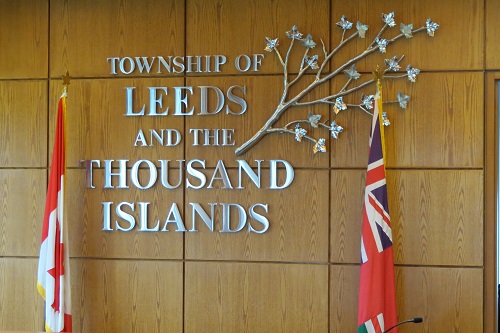
 Your elected officials in the Township of Leeds and the Thousand Islands are governed by the Municipal Act, 2001. The Act outlines several policies and processes to ensure accountable and transparent governance. Below are the key components that Council must adhere to in order to serve you, the taxpayer.
Your elected officials in the Township of Leeds and the Thousand Islands are governed by the Municipal Act, 2001. The Act outlines several policies and processes to ensure accountable and transparent governance. Below are the key components that Council must adhere to in order to serve you, the taxpayer.
If you are dissatisfied with services, programs, action or lack of action by a department or staff member, please review Bylaw 22-057 Customer Complaint Policy and complete our Customer Complaint Form, if applicable.
Policies |
|
The Municipal Act, 2001 requires municipalities to have policies related to:
|
Code of Conduct |
|
In accordance with subsection 223.2(1) of the Municipal Act, 2001, municipalities are required to adopt a Code of Conduct for members of council and certain local boards. Ontario Regulation 55/18 requires that a code of conduct include prescribed subject matters:
Read the Code of Conduct for Members of Council and Local Boards |
Integrity Commissioner |
|
The Municipal Act, 2001 authorizes the municipality to appoint an Integrity Commissioner who reports to Council and who is responsible for performing in an independent manner the functions assigned by the municipality with respect to any or all of the following:
The Integrity Commissioner notes that although not required by the Province, it is essential that municipalities include a complaint protocol within their Codes of Conduct. Courts have indicated that an Integrity Commissioner relies on the Code of Conduct together with the complaint protocol as the ‘home statute’ of the Integrity Commissioner. Please reach out to the staff listed below to acquire the contact information for our current Integrity Commissioner. |
Provincial Ombudsman |
|
The Municipal Act, 2001 authorizes the municipality to appoint an Ombudsman who reports to Council and whose function is to investigate in an independent manner any decision or recommendation made or act done or omitted in the course of the administration of the municipality, its local boards and such municipally-controlled corporations as the municipality may specify and affecting any person or body of persons in his, her or its personal capacity. TLTI Council selected the Ontario Ombudsman as an investigator to ensure council functions in a fair, legal and reasonable manner when conducting business on behalf of the Township. The Ontario Ombudsman is an independent and impartial Officer of the Legislature who resolves complaints about government and public sector bodies. The Office of the Ontario Ombudsman was established in 1975 and can take complaints about the administrative processes and policies of provincial government and broader public sector bodies, municipalities, universities, and school boards. The Ombudsman attempts to resolve every issue, but in rare cases, may decide to launch an investigation. Since January 1, 2016, the Ontario Ombudsman has had a role with respect to municipalities. The Ontario Ombudsman cannot compel municipalities to take action, however they make recommendations to Council as part of their report. The Ontario Ombudsman does not replace a locally established complaint mechanism or act as Integrity Commissioner for municipalities. Further information can be found on the Ombudsman Ontario website. |
Conflict of Interest Act |
|
The Municipal Conflict of Interest Act set out what may be regarded as a primary set of ethical rules for Council and local board members. These rules apply, with some exceptions, to Council and local board members if they have a pecuniary (financial) interest in a matter that is before Council (or a local board) at a meeting. A pecuniary interest involves an actual or potential financial gain or loss. The legislation requires a member with this kind of interest, with certain exceptions, to, among other things:
Potential penalties for contravention of the Act include removal from office. The courts decide whether or not a contravention of the Act has taken place. The Municipal Conflict of Interest Act will:
|
Municipal Freedom of Information and Protection of Privacy Act (MFIPPA) |
|
Municipal Freedom of Information and Protection of Privacy Act (MFIPPA) is the primary statute for privacy and confidentiality which sets out rules for collection, use and disclosure of personal information and regulates confidential information of other kinds of information. Other statutes and laws including local by-laws also regulate personal and other kinds of confidential information. Members of Council, local boards and committees may have responsibilities if receiving confidential information in the course of their duties to protect and safeguard the information. |









